Remove PyCL ransomware Instantly
These browsers are also infected by PyCL ransomware| Chrome Versions | Chrome 52.0.2743, Chrome 53.0.2785, Chrome 57.0.2987, Chrome 56.0.2924, Chrome 55.0.2883, Chrome 51.0.2704, Chrome 58.0.3026.0, Chrome 48.0.2564, Chrome 54.0.2840, Chrome 49.0.2623, Chrome 58.0, Chrome 50.0.2661 |
| Internet Explorer Versions | IE 8:8.00.7000.00000, IE 8:8.00.7600.16385, IE 8:8.00.6001.17184, IE 8:8.00.6001.18241, IE 8:8.00.6001.18372, Internet Explorer 7-7.00.6000.16441, IE 8:8.00.6001.18702, IE 7:7.00.6000.16441, IE 10:10.0.9200.16384, IE 7:7.00.5730.1300, Internet Explorer 10-10.0.8250.00000, Internet Explorer 7-7.00.6000.16386 |
| Mozilla Versions | Mozilla Firefox:50.0.2, Mozilla Firefox:49.0.2, Mozilla:41.0.1, Mozilla Firefox:38.2.1, Mozilla Firefox:38.5.1, Mozilla:48, Mozilla Firefox:45.4.0, Mozilla:44, Mozilla Firefox:47.0.1, Mozilla:41.0.2, Mozilla Firefox:38.0.5 |
Easy Steps To Uninstall PyCL ransomware From Infected OS
PyCL ransomware is deemed as OS malware which is programmed to destroy your data and other important documents stored on OS. This type of malware enter your OS in many ways. It generally employs deceptive methods to enter the OS like spam emails, infected media devices, peer to peer file sharing, free downloads and so on. PyCL ransomware once installed on your OS, starts it execution automatically. You will not be able to know that virus has attacked your OS because it silently enters your OS.
After invading your OS, it can make your files and other documents inaccessible. It can make your OS slow and sluggish. Applications or programs may freeze or hang. Therefore, it is very important to Uninstall this malware if you find it on your OS.
Part 1 : Steps To Open Your OS In Safe Mode
Part 2 : Uninstall PyCL ransomware From Firefox
Part 3 : Uninstall PyCL ransomware From Task Manager
Part 4 : Uninstall PyCL ransomware From Registry Entry
Part 5 : Uninstall PyCL ransomware From Control Panel
Complete Removal Guide For PyCL ransomware From OS
Part 1 : Steps To Open Your OS In Safe Mode
In Windows XP/Vista/7 :
- Goto Start menu - > Restart button.
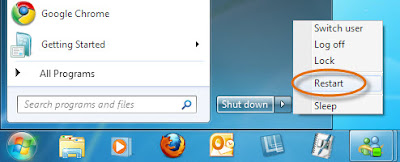
- Continue to press F8 button when your OS starts booting-up.
- Here, you will find Advance boot menu window on your OS screen.
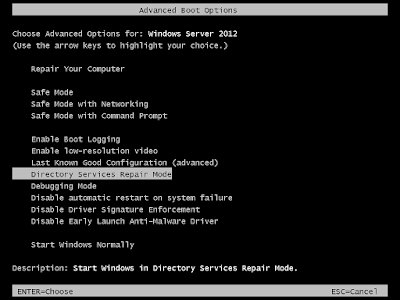
- Select Safe Mode With Networking Option and hit Enter key.
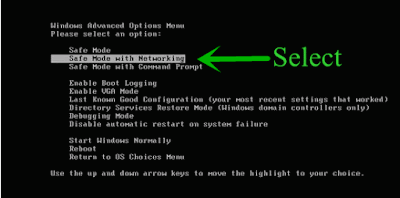
In Windows 8/10 :
- Click on Start menu press Shift key and click on Restart button.
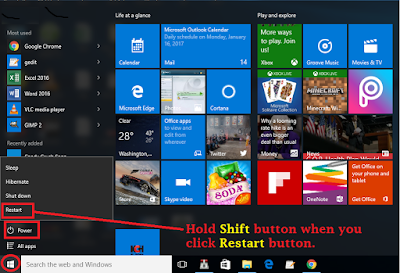
- Select Troubleshoot option -> Advanced.
- Click on Startup Settings.
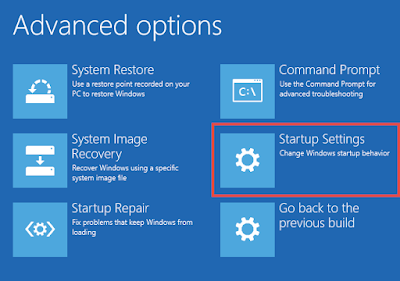
- Select Enable Safe Mode option.
- Click Restart button.
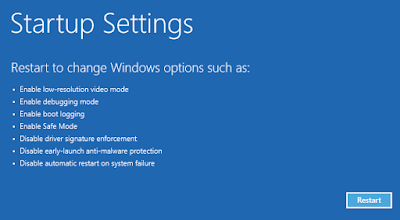
- Press F5 button to use Safe Mode With Networking option.
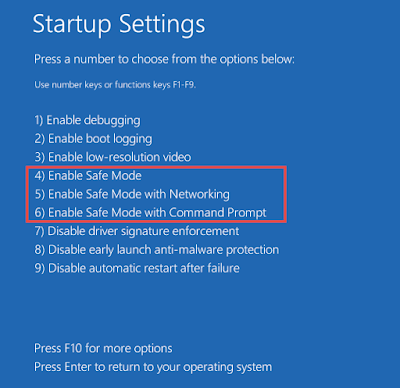
Part 2 : Uninstall PyCL ransomware From Firefox
Uninstall PyCL ransomware From Internet Explorer
- You can click on gear icon present at the right-top corner of the browser to open menu.
- Click on Manage Add-ons.
- Select Toolbars and Extensions tab..
- Select unwanted add-ons particularly related to PyCL ransomware.
- Click on Disable button.
- Click on More information button.
- At last, click on Uninstall button to finally Uninstall the virus.

Uninstall PyCL ransomware From Mozilla Firefox
- Launch Mozilla Firefox browser on your OS.
- Click on Menu button at the top right corner of the browser.
- Click Add-ons.
- Goto Add-ons Manager tab.
- In the Add-ons Manager tab, select Extensions or Appearance panel.
- Select PyCL ransomware add-ons you want to Uninstall.
- Click the Uninstall button and restart your OS if any pop up asks you to restart.

Uninstall PyCL ransomware From Google Chrome
- Click on gear icon present at the top right corner of the window to open Chrome menu.
- Click on the Tools option - > Extension tab.
- Locate unwanted extensions related to PyCL ransomware.
- At last, click on trash bin icon to Uninstall PyCL ransomware.

Uninstall PyCL ransomware From Microsoft Edge
- Click on More (...) icon at the top right corner and goto Settings option.

- Here, click on A specific page or pages option under the Open with option.
- Select Custom and enter URL which you want to set as your browser's default homepage.

Part 3 : Uninstall PyCL ransomware From Task Manager
- Press ALT+Ctrl+Del keys simultaneously.
- Select and click on Task manager option.
- Locate out unwanted process.
- Click on End Task button.

Part 4 : Uninstall PyCL ransomware From Registry Entry
- Press Win + R keys altogether to open run dialog box.

- Type regedit in the dialog box.
- Press OK button.
- Select and Uninstall entries related to PyCL ransomware.
HKEY_LOCAL_MACHINESYSTEMCurrentControlSetServicesWpm
HKEY_CURRENT_USERSoftwareMicrosoftInternet ExplorerMain “Default_Page_URL”
HKEY_LOCAL_Machine\Software\ClassesPyCL ransomware
HKEY_CURRENT_USER\Software\Microsoft\Windows\CurrentVersion\Run “.exe”
HKCU\Software\Microsoft\Windows\CurrentVersion\Internet Settings\random
HKEY_LOCAL_MACHINE\SOFTWARE\Microsoft\Windows\CurrentVersion\run\random
HKEY_CURRENT_USER\Software\Microsoft\Windows\CurrentVersion\Internet Settings “CertificateRevocation” = ’0
Part 5 : Uninstall PyCL ransomware From Control Panel
Uninstall PyCL ransomware From Windows XP
- Click on Start icon. A list will be appeared.
- Click on Control Panel.

- Click on Add or Uninstall programs option.

- Select and Uninstall unwanted programs running on your OS.
Uninstall PyCL ransomware From Windows 7
- Click on Start button.
- Click on Control Panel present in start menu.
- Click on Uninstall a Program.

- Then, Uninstall malicious programs running in your OS.

Uninstall PyCL ransomware From Windows 8
- Press Win+R button simultaneously to open Run dialog box.

- Type control panel in Run dialog box.
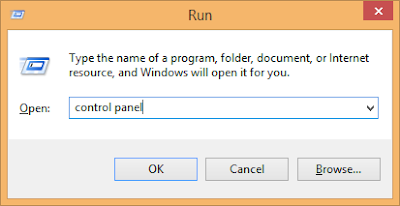
- Press Enter key to open Control Panel window.
- Click on Uninstall a Program.

- Right-click on PyCL ransomware and its related programs.
- Click on Uninstall.
Uninstall PyCL ransomware From Windows 10
- Click on Start button and choose Settings option.
- Click on System option -> Apps and Features.
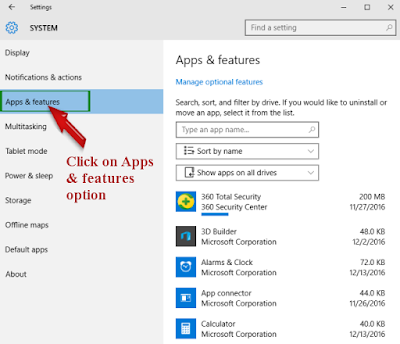
- Under Apps and Features tab, locate undesirable program.
- Click on Uninstall button.
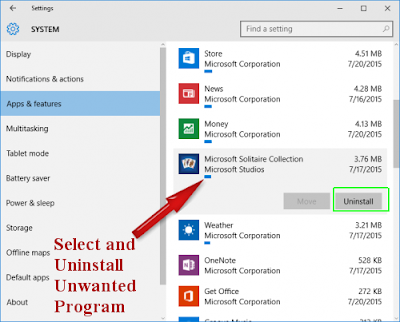

No comments:
Post a Comment